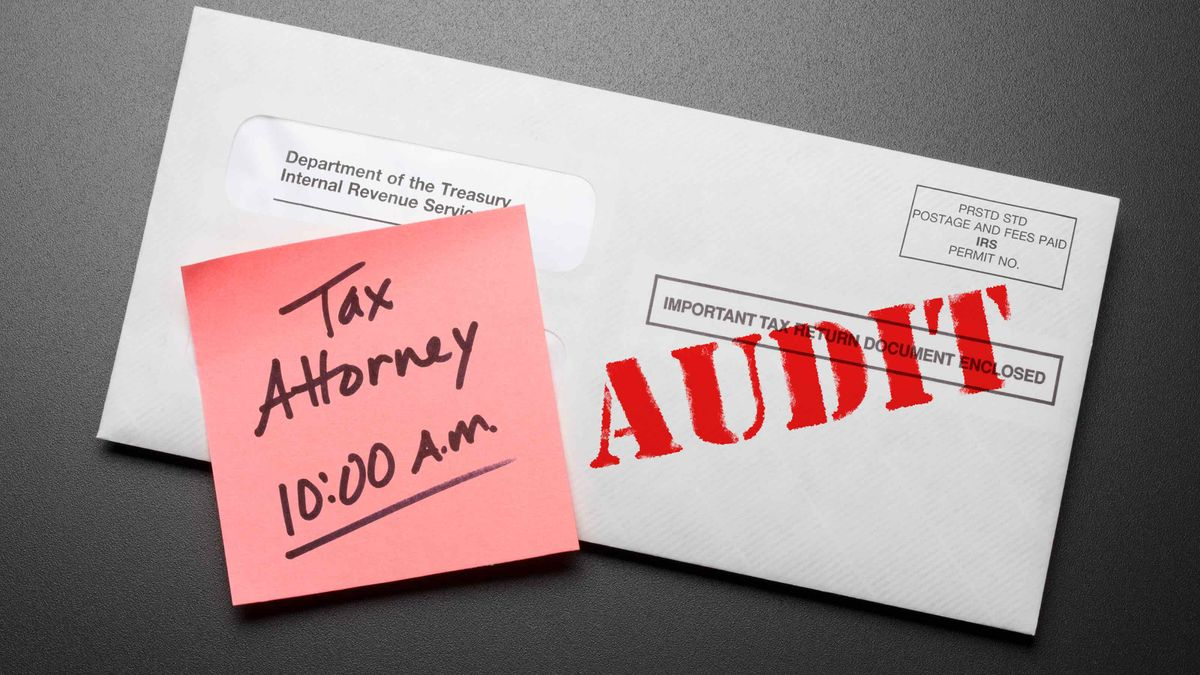Self-Employed? Avoid These IRS Audit Flags – Part I

Many entrepreneurs file their tax returns as self-employed individuals, reporting their business income and deductions on Schedule C within their personal tax returns.
While we generally recommend against this practice, most entrepreneurs are, in our opinion, better protected by establishing S Corporations, LLCs, or partnerships for their businesses; there may be good reasons in individual cases for Schedule C filing.
Be aware, however, that Schedule C filters and other small business owners may be targeted disproportionately for audit by the IRS.
No one wants an IRS tax audit!
So, how much can you reduce the audit risk for your small business?
Well, the short-and-not-so-sweet answer is, there’s a limit. There are no guarantees, ever, that the IRS will not audit you, as a business, whether you report on Schedule C, or file a business tax return, even if you’ve been absolutely scrupulous, dotted every “i” and crossed every “t.”
But there are some things business owners can and should do to minimize the risk of an audit. These include watching out for “red flags:” which are likelier to trigger an IRS audit.
We strongly recommend consulting your fractional CFO, or other trusted business and tax advisor to be sure you’re staying on track.
Some of the most common red flags are:
Irregularities in Reported Income
 The IRS has multiple avenues through which an individual’s or business’ income is reported to them – they don’t rely solely on the taxpayer’s word (or reporting).
The IRS has multiple avenues through which an individual’s or business’ income is reported to them – they don’t rely solely on the taxpayer’s word (or reporting).
So, ensure you are reporting the income included on every 1099 – keep close track of these, not only as you receive them, but as you anticipate receiving them. If you know the income came in, whether you receive a 1099 or not, report it on your books and your tax return.
In other words, maintain meticulous records, which track every single deposit, and report all your business income – every single penny.
If your business income happens to fluctuate significantly from one year to the next, prepare a narrative which explains the reasons behind the fluctuation – notable increases or decreases in supplier costs under a new contract, loss or gain of a major customer, etc.
Detailed, supported, and well-maintained documentation is the best defense to an IRS audit offense.
“Excessive” or “Disproportionate” Deductions and Expenses
 Of course you are entitled, as a business owner, to deduct a good many expenses against your business income – including for business travel, office supplies, office equipment (provided it’s used solely for business purposes), and home office expenses.
Of course you are entitled, as a business owner, to deduct a good many expenses against your business income – including for business travel, office supplies, office equipment (provided it’s used solely for business purposes), and home office expenses.
That’s in addition to deductible business expenses, including any payroll costs and other costs of goods sold, depreciation & amortization, legal and accounting fees, business equipment, office supplies, etc.
But keep an eye on them – if the IRS considers them “excessive: or “disproportionate” relative to your business income, you could wind up being closely scrutinized, and even, yes, audited.
So, do keep track of your legitimate business expenses, and document any large and/or unusual items. Prepare a narrative to explain the outliers, and why they are unlikely to be repeated in the near future.
It’s also a good idea to familiarize yourself with IRS guidance on deductions, both generally and in terms of your specific industry. Take note, as well, of industry norms relating to business deductions.
Home Office
 If you have a home office, as a small business owner, take a tax deduction, but make sure you use that room only for business purposes – the IRS cares, deeply.
If you have a home office, as a small business owner, take a tax deduction, but make sure you use that room only for business purposes – the IRS cares, deeply.
Measure the office – the square footage, as a percent of your home’s, may give you a baseline to deduct a portion of your utilities. You can include internet costs and some electric usage as well – but only for the percentage of internet and electricity used during the time you use them to conduct your business.
Again, maintaining thorough, consistent, well-documented and supported records is your friend here.
Large Cash Transactions
 If your business is cash-based, or if you have a significant number of cash transactions in large amounts, that, too, can trigger heightened IRS scrutiny. Further, if you have more such cash transactions than the IRS considers the norm for your industry, that can trigger an audit.
If your business is cash-based, or if you have a significant number of cash transactions in large amounts, that, too, can trigger heightened IRS scrutiny. Further, if you have more such cash transactions than the IRS considers the norm for your industry, that can trigger an audit.
All cash transactions, whether income or expense outlay, should be meticulously documented and matched with the appropriate invoice, whether it’s your invoice or a payable.
Any cash receipts of over $10,000 must be reported to the IRS on Form 8300, and it’s important to keep up with this. However, numerous cash deposits of slightly under $10,000 can also trigger scrutiny, on the theory that such deposits may be structured to avoid the Form 8300 reporting requirements.
We advise avoiding taking payment in cash so far as you can – ACH payments, credit cards, or checks protect you much better.
Check back here next week for more red flags that self-employed and other small business owners should avoid – we haven’t finished!
We invite you to consult with Rigby Financial Group’s expert virtual / fractional CFOs – we can guide you through the best ways to protect yourself – so far as possible – against the threat of an IRS audit. What will protect you and your business best isn’t necessarily the best way for anyone else.
Because one size never fits all – and at RFG, we celebrate your uniqueness! We are never looking to offer cookie-cutter solutions – every service we offer is tailored to your business, your needs and desires.
So, come to us for bespoke tailoring – of your business and tax planning, and any other needs you have.
Please click here to email us directly – let us know how we can help – that‘s what we are dedicated to and passionate about.
Until next time –
Peace,
Eric
